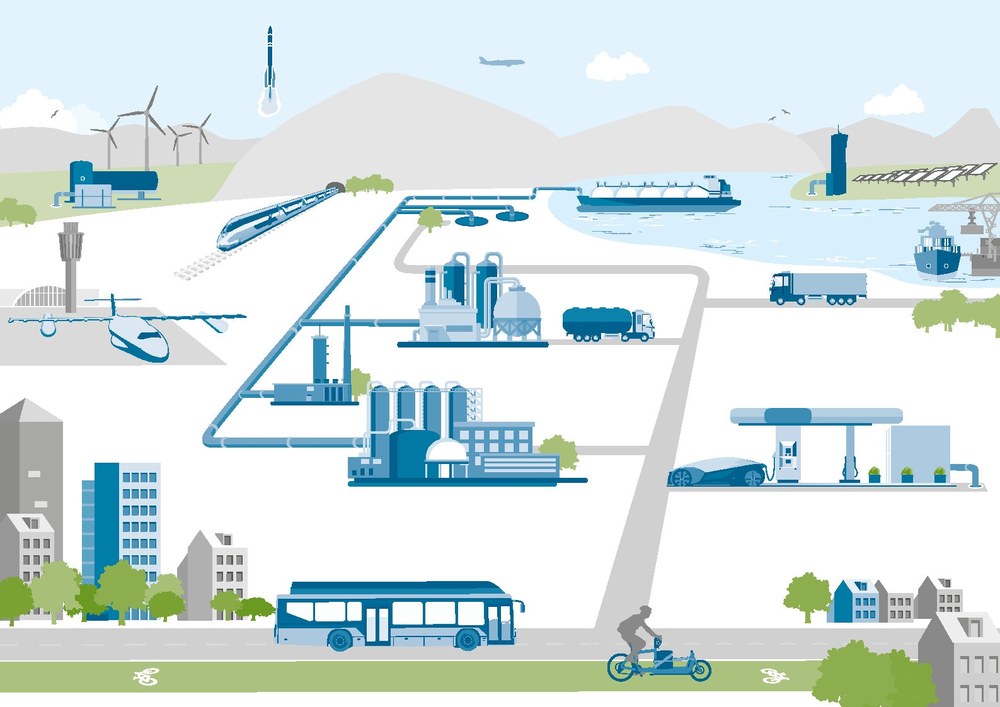Home
>
Latest>
News>
News archive>
Use of H2-based fuels in the maritime sector – DLR analyses effects on global trade
Use of H2-based fuels in the maritime sector – DLR analyses effects on global trade
- Around 90 % of international freight transport worldwide is carried by ship.
- Most ships use heavy fuel oil and are responsible for around 3% of global CO2 emissions.
- The decarbonisation of shipping plays an important role in the realisation of a climate-neutral transport industry.
- Focus: Energy, hydrogen, shipping
How hydrogen-based fuels can contribute to reducing CO2 emissions in global shipping has been analysed by DLR in the short study "Future maritime fuels and their possible import concepts". For this publication, researchers from the Institute for Networked Energy Systems analysed, among other things, the macroeconomic effects of future climate-neutral shipping on global trade.
Particular attention was paid to the European economic area. The institute was also involved in a comparative analysis of alternative production routes for hydrogen, ammonia, methanol and LOHC, as well as an outlook on required supply infrastructures and suitable use cases for hydrogen-based fuels on ships.
Download
Contact
Dr Thomas Vogt
Head of Division
German Aerospace Center (DLR)
Institute of Networked Energy Systems
Energy Systems Analysis
Prof. Patrick Jochem
Head of Division
German Aerospace Center (DLR)
Institute of Networked Energy Systems
Energy Systems Analysis
Heinke Meinen
German Aerospace Center (DLR)
Institute of Networked Energy Systems
Institute Communication

